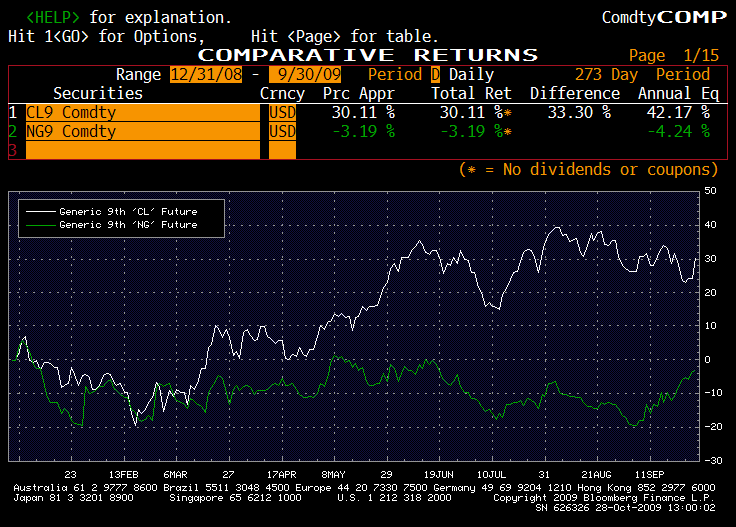(Published in Spanish in Cotizalia on Thursday 15th Oct)
Oil has reached $80 a barrel. On the demand side, there has been an upward revision of estimates of the International Energy Agency, IEA and EIA. On the supply side, the fact is that in the last five years, increased investment in exploration and production ($220 billion per year), has not helped to replace 100% of the reserves consumed. Moreover, extraction costs are still too high and declines are affecting production in countries like Norway and Mexico, with falls of 6% and 3% respectively.
In natural gas, the situation is almost the reverse. The world has 60 years of life of proved reserves, which compares with fewer than 45 in oil, and to the estimate we must add large unconventional gas reserves. Proof of such excess is that in early 2009, British Gas decided to sell long-term 85% of its gas production expecting an environment of overcapacity in the medium term. Back then gas was trading at $ 7 per million BTU. Today is at $ 4.
On the demand side Eurogas expects zero growth in demand for gas in 2010, after a fall of 7% in 2009. This occurs while Qatar, Yemen and Australia, among others, are setting up more than 90 million additional tons per year of LNG capacity between 2009 and 2012. The projects in Qatar are competitive at $ 1.5 per million BTU, a level “only” three times less than the current one. This means nearly 9 trillion cubic feet per day of spare capacity. Um, does not look good.
As from 2013, the overcapacity created by excessive liquefied natural gas is reduced by lack of new projects. Since, according to international agencies, we will probably see a very moderate increase in demand in coming years, the supply of gas will remain ample. As for China, it can cover the vast majority of its gas demand with its own production, with the ability to have five times the current domestic production through its 756 trillion cubic feet of recoverable reserves.
Interestingly, gas E&P stocks have performed in line with their of oil peers, although the oil price has risen by 30% and gas has fallen by 4%, showing the market is already anticipating a return of oil-gas convergence. I do not know on what basis. I just came from a few days with gas producing companies and the expected returns on their investments remain significant. Is that what investors buy? We’ll see if the results prove it and if valuations are justified.
